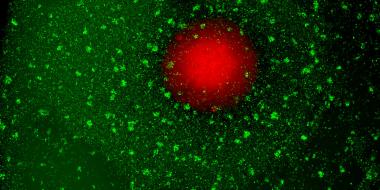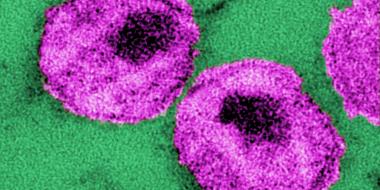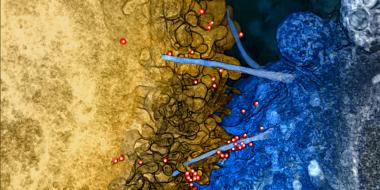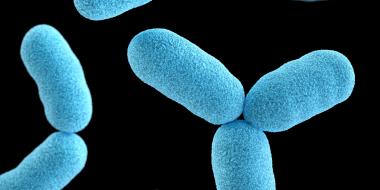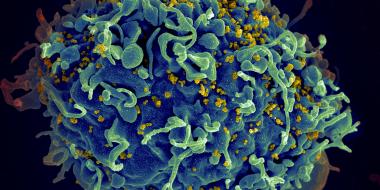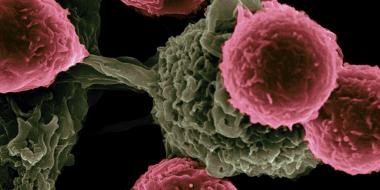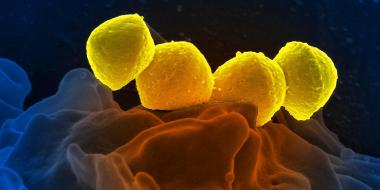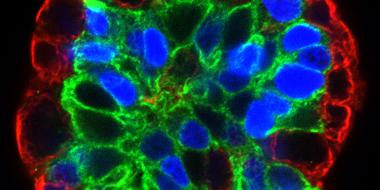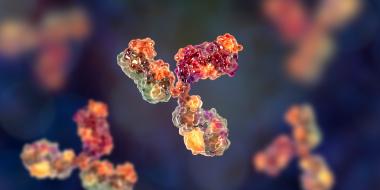Global infectious diseases
IrsiCaixa works to provide solutions to infectious diseases that affect millions of people around the world, such as HIV/AIDS or COVID-19.

HIV/AIDS
Chronic treatment of HIV using ART combinations prevents disease progression in most cases, but does not cure the infection and is costly, and once a person stops taking their medication, the virus reappears in a matter of weeks. Major goals of current research include eliminating the need for medication for people living with HIV, fully understanding how the virus works, and identifying new prevention strategies.
Eradication and functional cure
IrsiCaixa invests a large part of its efforts in finding a cure for HIV/AIDS so as to achieve natural infection control without the need for medication. This goal can be achieved in two ways: eliminating the viral potential to replicate and infect new cells, and reversing the immune dysfunction produced by the virus. IrsiCaixa’s focus is on designing strategies, or combinations of strategies, that achieve viral control, including therapeutic vaccines, cell therapies, synthetic antibodies, and drugs that reactivate latent virus or induce deep latency.
Viral reservoir studies
A main IrsiCaixa research objective is finding out how to identify, activate, and destroy viral reservoirs, as a definitive step towards HIV eradication. Current treatment has to be for life, because infection is reactivated when a person stops treatment due to HIV activity in reservoirs of cells where the virus remains latent. While the cell remains inactive, the viral reservoir remains invisible to the immune system and so ART fails to detect and remove it. Among other strategies, IrsiCaixa implements projects that seek to better understand the biology of viral reservoirs, to measure reservoirs accurately in both adults and children, and to functionally deactivate them.
The best strategy: prevention
All research aimed at eradication or functional cure is closely linked to research into HIV infection prevention, whether through preventive vaccines and drugs or through protective antibodies. With a view to developing preventive strategies, IrsiCaixa studies immune response in people at high risk of contracting HIV, and is working on the development of monoclonal antibodies that block HIV action in the body and boost the immune system activity of the natural killer cells responsible for destroying infected cells. In the future, these tools could form part of both an eradication and prevention strategy.
A global health problem
people living with HIV
new infections per year
annual deaths
of people living with HIV do not receive treatment
Greater life expectancy – but not for everyone
Nowadays, life expectancy of a person with HIV receiving treatment is around the same as that of an uninfected person. Unfortunately, despite global efforts, only 75% of people living with HIV worldwide have access to ART, leaving millions of people, mainly living in low-income countries, for whom HIV infection is a serious health problem. Research to develop strategies to provide treatment, improve treatment adherence, and to ultimate eradicate HIV/AIDS therefore represents a major scientific and economic challenge for the scientific community.
SARS-CoV-2/COVID-19
Experience accumulated over 25 years in virology and the immune system has placed IrsiCaixa at the forefront of the fight against the SARS-CoV-2 virus since the beginning of the pandemic. In coordination with other national and international institutions, IrsiCaixa is working on understanding the virus and on seeking solutions that keep the clinical community one step ahead in controlling its spread, with SARS-CoV-2 research projects that range from novel treatments to virus detection and prevention.
COVID-19 protection: how and for how long
Despite the availability of vaccines against SARS-CoV-2, the emergence of new variants represents a constant challenge to levels of protection generated against COVID-19. IrsiCaixa’s various research groups are seeking alternatives, such as new vaccines and synthetic antibodies, that ensure potent and long-lasting immune system activation against SARS-CoV-2, and are monitoring protection levels against COVID-19 in different groups, focusing especially on cellular and humoral immunity in cohorts of hundreds of participants, including people with compromised immune systems, adults, and children, etc.
The patient as the research focus
IrsiCaixa works closely with the Infectious Diseases Service of the Germans Trias i Pujol University Hospital and is involved in the development of several clinical trials aimed at preventing SARS-CoV-2 infection and progression to severe stages of COVID-19, on the development and study of new drugs, and on studying markers that predict patient evolution and new detection tools.
